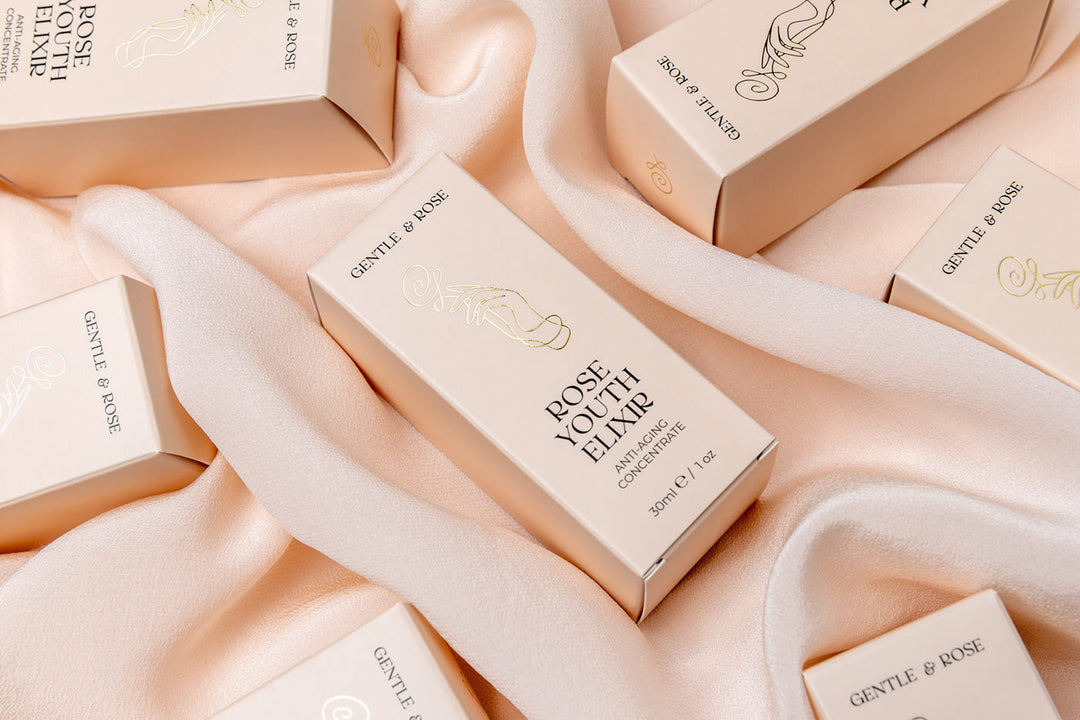10 of Your Most Asked Skincare Questions—Answered!
Have you ever stood in front of the mirror and wondered, “Why is my skin changing so much, and what should I do about it?”
You’re not alone. For women over 40, skincare can feel like a puzzle—new concerns like dryness, wrinkles, and even breakouts can leave you questioning your routine.
Let’s tackle your top skincare questions together, one step at a time.
1. Do I Need to Use Moisturiser in the Morning and Night?

Yes, moisturising both morning and night is essential for maintaining healthy, hydrated skin.
Your skin needs constant hydration, whether you're protecting it from the day’s elements or supporting its repair overnight. In the morning, a lighter moisturiser helps create a smooth base for makeup and protects against environmental stressors.
At night, a more potent moisturiser like our Prebiotic Moisturising Cream can address multiple skin concerns, including anti-aging and hydration, helping your skin recover and renew while you sleep. With consistent use, you'll notice a smoother, plumper complexion, and reduced signs of dryness and fine lines.
2. Retinol, Retinoids, and Bakuchiol—What’s Right for You?

It can be confusing to choose between these powerful ingredients, but each serves a purpose. Retinol is an effective but slightly harsh over-the-counter option, while prescription retinoids are even stronger and are often sold with prescription.
If your skin is sensitive, Bakuchiol, a natural alternative, offers anti-aging benefits without irritation. It’s all about finding what works for your skin type and comfort level, so don’t hesitate to experiment or seek professional advice.
3. Managing Wrinkles and Breakouts Together
Dealing with wrinkles and acne at the same time can feel unfair, but it’s more common than you think. Hormonal changes often trigger breakouts, while fine lines become more noticeable.
Look for multitasking products, like the Rose Youth Elixir, which can target both concerns. You can combine it with the Prebiotic Moisturising Cream, which is really helpful when you also want to hydrate your skin. With a balanced routine, you can tackle both issues without overwhelming your skin.
4. Starting Sunscreen Later in Life

If daily sunscreen wasn’t a part of your routine in your younger years, it’s not too late to start now.
Protecting your skin from further UV damage is one of the best ways to prevent wrinkles, dark spots, and sagging. Choose a lightweight, broad-spectrum sunscreen with at least SPF 30, and make it a habit every morning (you can give our Antarctic Sun Defence 50 SPF a chance - it's the perfect day cream with 50 SPF)
Your skin will thank you for this simple step.
5. Should I Be Using an Eye Cream, and What Ingredients Should I Look For?
The delicate skin around your eyes often shows the first signs of ageing, like fine lines or puffiness. A good eye cream can make a noticeable difference.
Look for hydrating formulas with caffeine to reduce puffiness, retinol or peptides to soften lines, and ingredients that brighten dark circles. Applying it gently with your ring finger will help avoid tugging and ensure this fragile area gets the care it needs.
6. How Can I Make My Skin Look Firmer and More Lifted Without Invasive Procedures?

Firming your skin doesn’t require surgery—skincare and tools can help.
Incorporate ingredients like Bakuchiol, which promotes collagen production, and use products with antioxidants to prevent further damage. Skincare devices like microcurrent tools or facial rollers stimulate circulation and temporarily tighten skin.
Additionally, facial exercises, such as face yoga can improve tone over time. While these methods aren’t instant fixes, consistency can yield noticeable improvements in firmness and lift
7. Do I Need to Change My Skincare Routine as I Get Older?
As your skin evolves, so should your routine. What worked in your 20s or 30s might not meet the needs of drier, thinner, or more sensitive skin.
Focus on hydration with gentle cleansers (you can check out the Hydrating Cleanser that gently exfoliates), richer moisturisers, and serums packed with active ingredients.
Scale back on harsh exfoliants and prioritise products that support your skin’s natural barrier. A few small changes can make a big difference as your skin adjusts over time.
8. Are My Products Working?
It can be frustrating to invest in skincare and wonder if it’s making a difference. Results often take time—usually 4-12 weeks—but signs like smoother texture, better hydration, or a healthy glow show you’re on the right track.
Take progress photos or note small changes to keep yourself motivated*. If irritation or no improvement occurs, it may be time to rethink your routine or consult a professional for guidance.
*If you send us your before/after photos you will be in for a surprise.
9. Tackling Dark Spots and Uneven Tone
Dark spots can feel stubborn, but targeted treatments can lighten them over time. Vitamin C serums brighten skin and fade discolouration, while exfoliating acids like glycolic acid boost cell turnover.
For a gentler approach, try Niacinamide or licorice root extract. The most important step? Daily sunscreen to prevent spots from worsening. With consistency and patience, you’ll notice a more even, radiant complexion.
10. What Is Skin Barrier Damage, and How Can I Fix It?
The skin barrier is your outermost layer, protecting against irritants and locking in moisture. Overuse of exfoliants, harsh cleansers, or environmental factors can weaken it, causing sensitivity, dryness, and redness.
Repair it by simplifying your routine—use a gentle cleanser, avoid exfoliation, and focus on hydration. Look for ceramides, niacinamide, and squalane in products to restore balance. A healthy barrier is the foundation of radiant skin.
11. How Does Menopause Affect My Skin, and What Can I Do About It?

Menopause brings hormonal changes that can result in dryness, thinning, and sagging skin. Reduced estrogen levels affect collagen production and moisture retention.
Combat these changes with rich moisturisers, serums containing Bakuchiol, and collagen-boosting peptides. Sunscreen becomes even more critical as your skin thins.
Stay hydrated, eat a balanced diet, and consider professional advice for advanced treatments. Embrace the changes as part of your natural beauty journey.






Leave a comment